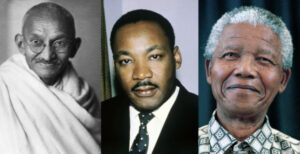
During the repeated election cycles in Israel, an opportunity is emerging for the center-left to create a reliable majority without including former Prime Minister and Opposition Leader Benjamin Netanyahu in power. If all Arab parties are included in the center-left coalition, a majority government with 61 seats in the Israeli parliament would not be very difficult to obtain. Arab parties and the center-left need to coalesce behind the shared purpose of ousting Netanyahu and his agenda from power in Israel once and for all.
The “Unity’’ government of Defense minister and former army chief of staff Benny Gantz and Netanyahu has shown that there’s no point in compromising with Netanyahu in any way. The only way to govern effectively is to present an alternative working majority – this can be done only by partnering with controversial Arab parties in government.
Arab parties have already contributed greatly to the cause of keeping Netanyahu out of power. In the March 2020 election, Arab parties got 15 seats and the Netanyahu bloc got 58. Had Arab parties secured only 10 seats, as they did in the April 2019 election, the Netanyahu bloc would have probably gotten 61 seats, forming a solid right-wing government.
In the aftermath of that election, Gantz, once the leader of the center-left bloc had joined forces with Netanyahu to create a “Unity’’ government, primarily to fight the coronavirus pandemic. However, a few months later, the government was dissolved after its inability to pass a budget.
In another instance, the electoral contribution that Arab parties give to the center-left coalition is the presence of the Islamist Party, Ra’am, in the current Israeli government. This coalition was able to pass a budget that contained important investments toward the Arab population in Israel, which is significantly economically disadvantaged. There are 2 million Israeli Arabs who are less engaged in politics than Israeli Jews and aren’t usually present in Israeli governments – because of this fact – they are less able to get government resources. Those investments include 2.5 Billion shekels (700 Million Dollars) to fight violence in Arab society, including the recruitment of more than 1,000 officers. They also include investments in education, including building more than 1,000 classes and kindergartens in Arab cities and towns. Raam’s presence has proved to be a great success; they have proven that they can be a great partner to a center-left coalition.
Yet, there is still a problem. There are more Arab parties in the Knesset that hold more radical positions on the Israeli-Palestinian conflict, Those Arab parties sympathize with violent Palestinian resistance to the occupation in the west bank – a stance which is very unpopular among Israeli Jews. Thus, it is understandable why it would be hard for Gideon Sa’ar, a staunch right-wing politician and former senior Likud politician, to sit with these parties in the same coalition. However, there is no other alternative. In the current government, the center-left has brought former defense minister and settler leader Naftali Bennett in to compensate for the lack of other Arab parties. But Bennett is gone from the political scene, and most of his voters vote for far-right parties.
Hence, the moderate factions in the center-left have to make a monumental decision: who do they prefer? Would they prefer to align with Netanyahu, who they rightly view as a threat to Israel’s Democratic norms and culture? Or would they rather form an alliance with Arab parties which they don’t align with on the ideological level?
I believe Arab parties and Israeli moderates should come together to defeat Netanyahu and his values. Israel’s political environment cannot withstand the impact of raising staunch differences. In recent years, Netanyahu’s crusade to delay or cancel his trial has led to him embracing more extreme allies such as former Kahanist Itamar Ben Gvir. Because of this fact – the stakes of any election have risen dramatically, and the alternative to the coalition described here is becoming worse and worse. Hence – achieving unity between the politically moderate coalitions and all Arab parties should be the center left’s goal.



